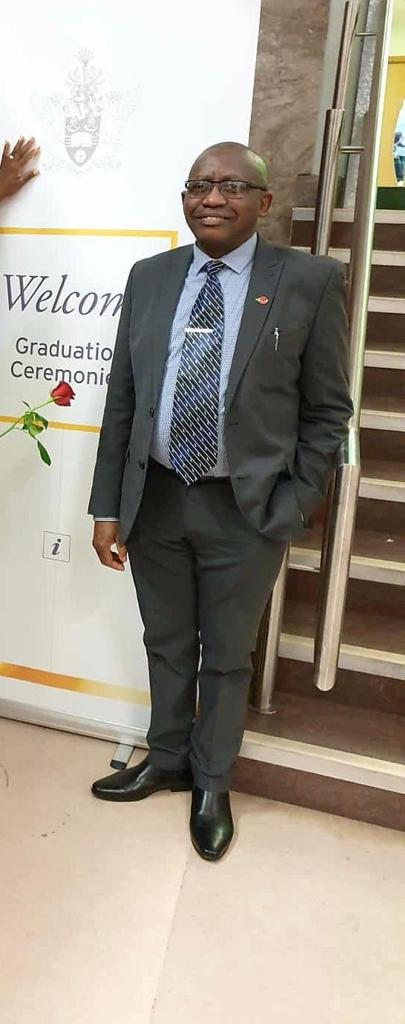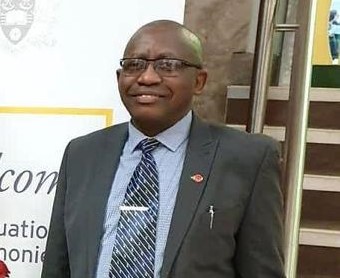By Dr. Abdul Rahman Lamin, Paris, France
Please allow me to share reflections on the life of our late brother, comrade and friend, Dr. Joseph Lansana Kormoh at two levels. First, I will do so at a personal level, having first met Dr. Kormoh, way back in the early 1990s, a period when we were all very young, happy, and ambitious students at Fourah Bay College, filled with great hope and aspirations about the future. Notwithstanding the challenges we encountered going through the rigors of university education, which also included learning and perfecting the art of cooking our own meals in between classes and other extra-curricular activities, Kormoh always stood tall among men and women of our generation. A fine brother whose sense of humor and love of life was both infectious and contagious, Joseph Lansana Kormoh’s personality endeared him to us all, in those formative years. His presence would immediately lighten any gathering, and especially so at the famous “Wisdom Tree” where we spent countless hours debating issues of our time, over star beer and Guinness at the Student Union canteen right next door. He was a man with whom you’d always be happy to share your “one-pot” meal, even if you did so grudgingly because he showed up right at the time of dishing, and hence wasn’t catered for. You’d do so happily because you knew that for Kormoh, it was not only a question of sharing a meal or a drink together. It was much more than that, and I’m sure that all of us who encountered him in those years, and later in life have their own unique personal experiences that they still cherish and hold so dearly of Kormoh. For me, it was his genuine sense of humanity and the determination to transcend boundaries and forge relationships. I’ll miss that so much.
Following our time at FBC, I again encountered Kormoh more than two decades later, when I visited University of Bradford in the UK in 2014, as a guest of the Department of Peace Studies during the celebration of the 40th anniversary of department’s establishment. Incidentally, Kormoh was a doctoral candidate in the Department of Peace Studies at the time, and the days we spent together back then, confirmed my long-held view of Kormoh as an intellectual who had a deep sense of commitment to the transformation of society, and it is to that mission I’d like to speak briefly as the second level of my reflection. In the numerous discussions and debates we had then, I was convinced that for Kormoh, scholarship was not just about embarking on the discovery of, and advancement of the frontiers of knowledge for the sake of winning accolades among one’s peers, which after all, is the core mission of the academe. Rather, it was much more than that. The discovery and deconstruction of knowledge from Dr. Kormoh’s perspective entailed a mission connecting that process with addressing challenges in society, and consequently advocating social change. Hence, as a trained historian who later went on to graduate with a PhD in Peace Studies from University of Bradford, Kormoh saw, and defined his mission in this life as one with a duty to place his God-given talent and intellectual capabilities at the service of humanity, by ensuring that his scholarship was influential enough to inform policies and practices that concretely address today’s challenges, whether those be the fight against ignorance and intolerance, or the fight against poverty, inequalities, and their related socioeconomic consequences. This unique and rare quality of Dr. Kormoh, the public intellectual with a social mission became even more evident to me in the years following our encounter at Bradford. In fact, a closer examination of his scholarly contributions and engagement with the academe suggests that this was a man genuinely concerned with not only telling the African story from the perspectives of Africans, but bravely did so, with his ever-gentle call for positive social transformation. Whether those were his essays on the challenges of building peaceful and cohesive African societies, or his involvement with the very ambitious project of decolonizing African history and epistemologies, a project that has preoccupied generations of African scholars and practitioners, ranging from the generation of Kwame Nkrumah and Ali Mazrui, to our own younger Sierra Leonean scholars like Zubairu Wai, Foday Mannah, and Saidu Bangura, who are all incidentally his peers, our late brother was genuinely concerned with the African condition. His visibility in this space was already becoming clearer, following his return from the UK to Sierra Leone in 2021, to teach in the Department of History and Africana Studies at Fourah Bay College.
Allow me, distinguished ladies, and gentlemen to quickly illustrate this with one example, which connects Kormoh’s intellectual journey with the mission of my own employer, UNESCO. In the more than 75 years since its establishment in 1945, one of UNESCO’s most important contribution to Africa, is the facilitation of a process that led to the production of a huge body of work that meticulously documents Africa’s history, through the lenses of African and Africanist scholars, to counter the dominant historical narratives that have for centuries dominated European scholarly portrayal of Africa and its peoples. The first phase of that monumental project, initiated by UNESCO in 1964, at the request of the Organization of African Unity (now AU) culminated in the publication of eight encyclopedic volumes, collectively known as General History of Africa, in 1999.

Since 2009, UNESCO has been working with African countries to incorporate these materials into school curriculum across continent, in the second phase of the project titled the Pedagogical Use of the General History of Africa, a decision endorsed by the leadership of the African Union. You might be wondering what does Kormoh’s academic journey have to do with UNESCO? Well, the truth is that upon his return to Sierra Leone in 2021, Dr. Kormoh took an active interest in the project, and immediately started working closely with the Sierra Leone National Commission for UNESCO and the UNESCO Regional Office in Abuja, Nigeria, to ensure that Sierra Leone was among the first set of countries in Africa to begin taking steps to implement this pan African commitment. Up to the time of his untimely death, Dr. Kormoh was UNESCO’s focal point for that project, and in so doing, distinguished himself as true pan African scholar. It is my hope that his colleagues in the Department of History and Africana Studies, will take up this important initiative and work with the Sierra Leone National Commission for UNESCO, moving forward.
Let me close by stating, like others before me have already alluded, that Dr. Kormoh’s death has robbed Sierra Leone of one of the brightest minds of our generation, one who carried his mission in life with great humility. Go well, and sleep peacefully Brother Kormoh, till we meet again. We know that you’re now safe in the hands of the ancestors, and your place in our history and collective memory, is well secured. Our task now is to uphold and protect the rich legacy of your compassionate service to humanity through your own unique brand of intellectual agency.
Dr. Joseph Lansana Kormoh will be laid to rest in his home, Mobai, in Kailahun District, Eastern Sierra Leone, on Friday 10 June 2022. May God Almighty rest his precious soul in eternal peace, Amen!
8 June 2022






















